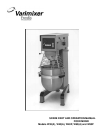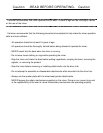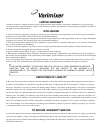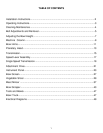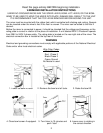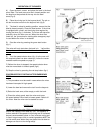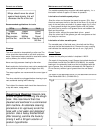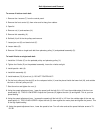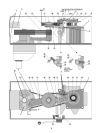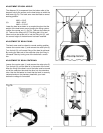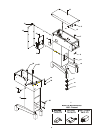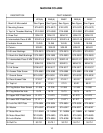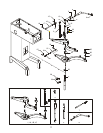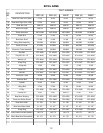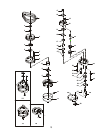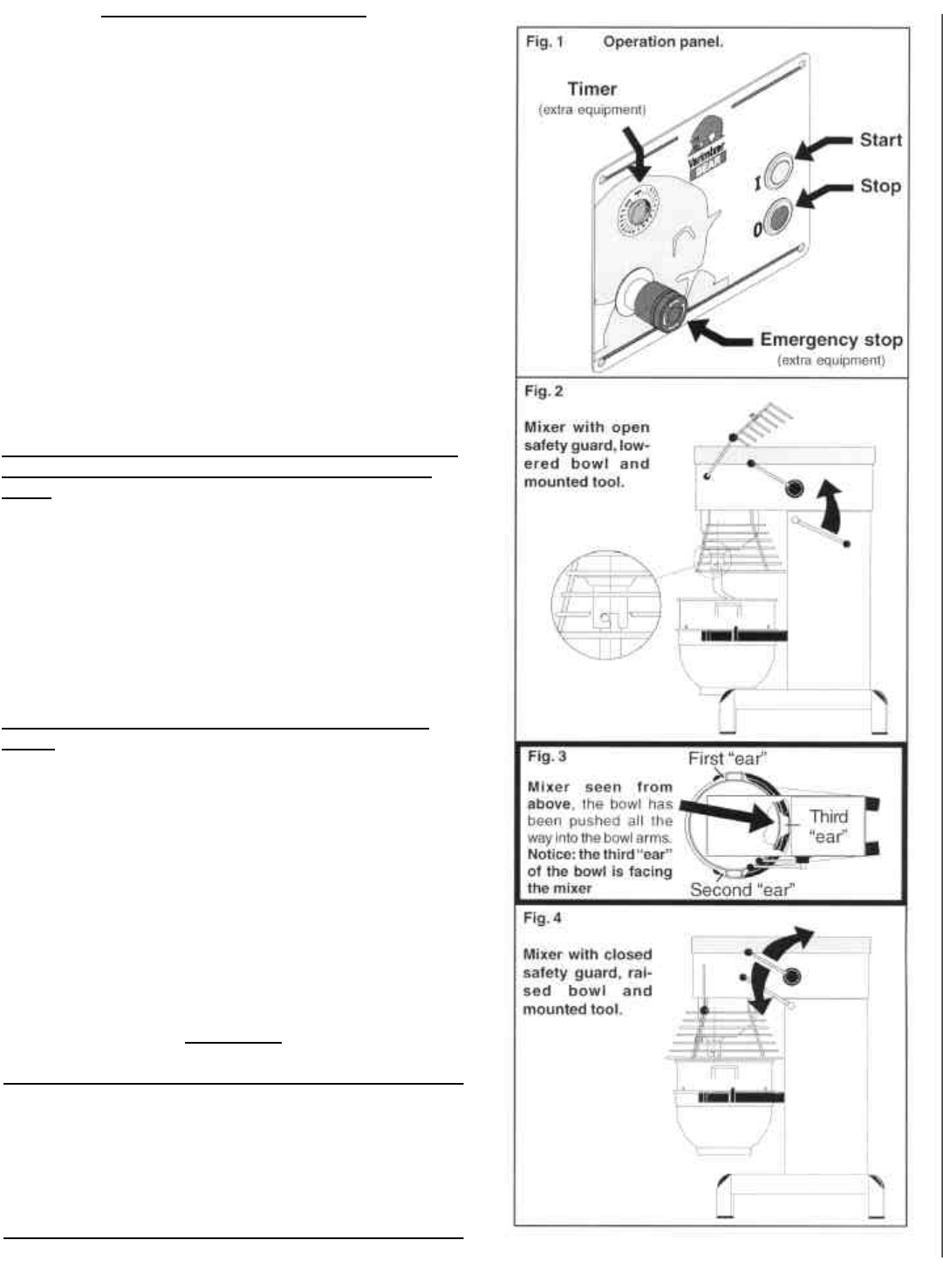
OPERATION OF THE MIXER:
A) Open the bowl screen and place the bowl in the bowl
arms. Note: The bowl arms must be in lowest position and
the bowl must be pushed all the way into the bowl
arms.(Fig.3).
B) Place the mixing tool in the bayonet shaft. The pin on
the tool must be turned into the bayonet hole (fig.2).
C) The bowl is raised to working position, ensure that the
bowl is placed correctly. Close the bowl screen. If the mixer
is equipped with a timer, set the mixing time required by
turning the timer (fig 1) clockwise. The mixer will stop auto-
matically, when the time runs out. When the mixer has
timed out, the "procedure for starting after emergency stop"
is used before the mixer is re-started.
D) Start the mixer by pressing the green start button
(fig.1)
The mixer will only start when the bowl is in "up"position,
the bowl screen is closed,and the timer is set to time or
"hold".
E) Turn the speed selector lever (fig. 4) to the rear until
the required speed has been obtained, (notice the recom-
mended maximum speeds on page 3).
F) Before the mixer is stopped, the speed selector lever
must be moved back to lowest speed (fig.4).
G) Stop the mixer by pressing the red stop button (fig.1)
PROCEDURE FOR STARTING AFTER EMERGENCY
STOP:
1) This procedure must be used in cases where the mixer
has been interrupted in high speed.
2) Lower the bowl and remove the tool from the bayonet.
3) Raise the bowl arms, either empty or with the bowl.
4) Close the safety guard, start the mixer and move
the speed selector lever back to lowest speed. Switch off
the mixer. Now the mixer can be started as usual.
OVERLOAD
Do not overload the mixer. Sticky and heavy doughs may
reduce the capacity of the bowl by 75%. The capacity is
further reduced if the speed of the mixing tool is increased
beyond recommended values or if an incorrect mixing tool
is used. Large lumps of fat or cooled ingredients MUST be
cut into small parts before they are placed into the bowl or
damage can occur to the mixing tool(s).
3



